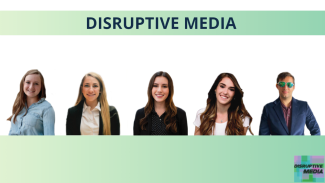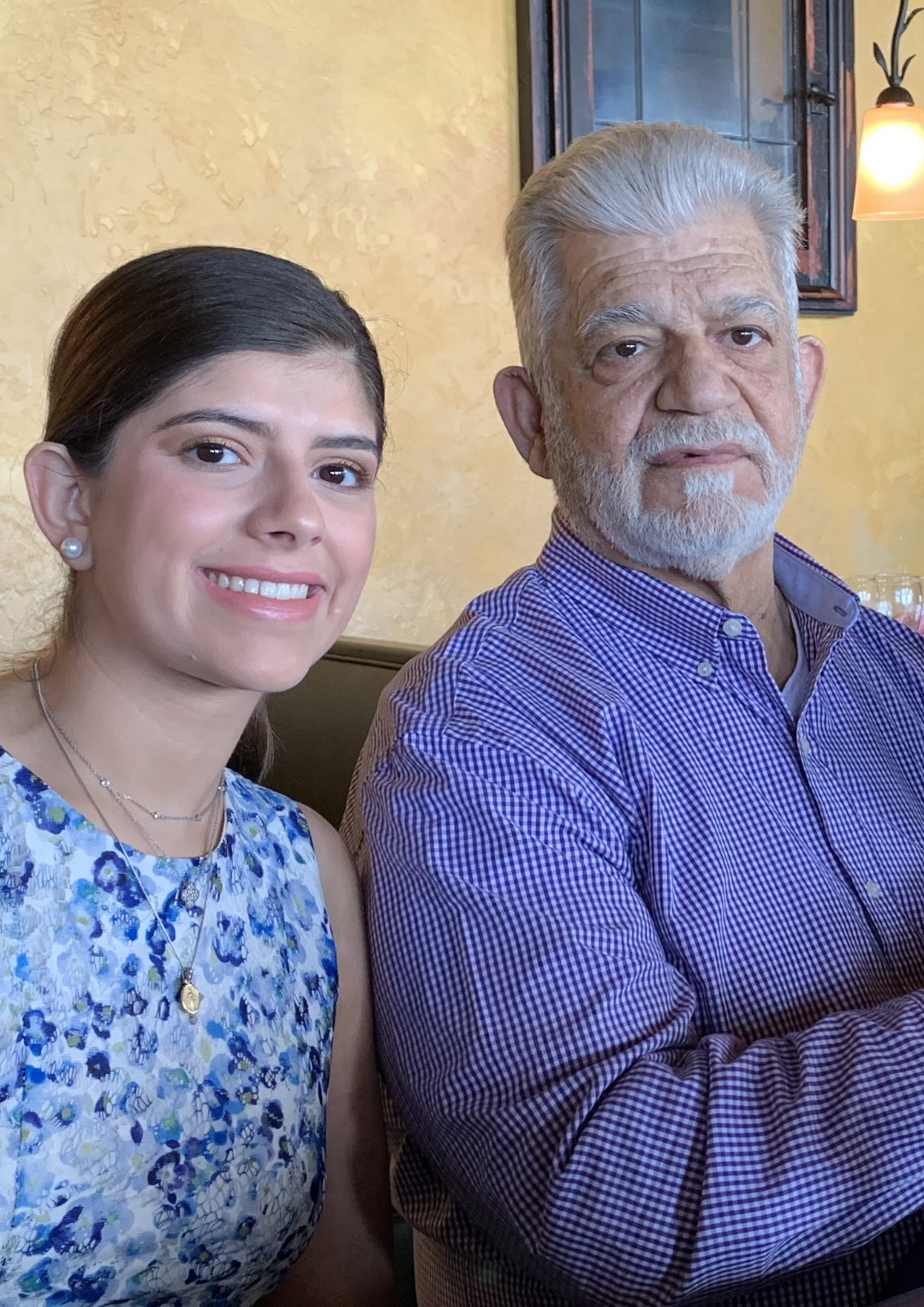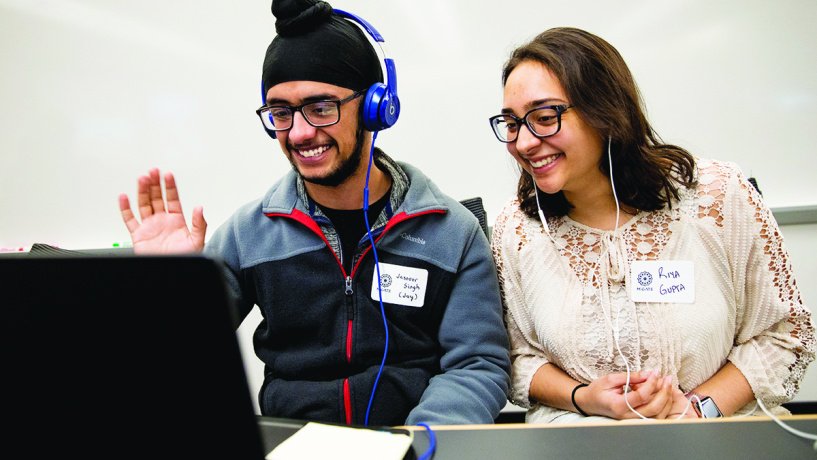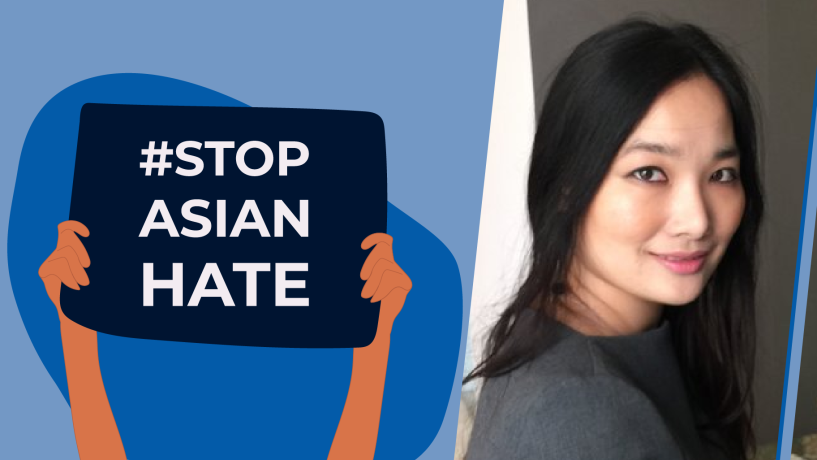Students in Michigan Ross Marketing Course Partner with Nonprofit to Develop Key Insights into Spreading Awareness of the Kidney Evaluation and Donor Process

In a marketing course at the Ross School of Business this year, undergraduate students leveraged their skills and marketing knowledge to develop important insights now being used by Kidney for Karcho, a nonprofit founded by University of Michigan alumni Briana Karcho, BA ’18.
After receiving news that she could not be a kidney donor for her father, Manuel, Karcho quit her job as a sales representative in executive recruiting to become a full-time patient advocate. She started Kidney for Karcho in June 2020 to find her father a type O living kidney donor.

“I found out I couldn’t donate and I wanted to do everything in my power to try to help my dad.
There are injustices to uncover in the kidney evaluation process,” explained Karcho. “There’s no blueprint for people to follow. The process is broken and disjointed. Potential donors drop out because it's confusing and time-consuming.”
Karcho recognized how complex the kidney evaluation process is and saw an opportunity to better inform others and help improve the process.
She approached her former professor Amy Angell, lecturer of marketing at Michigan Ross, with a potential project for students in her Marketing 407: Designing Persuasive Communications course. From her experience as a former student and teaching assistant for the course, Karcho knew she could benefit from tapping into the knowledge and talent base of Michigan Ross and U-M students to get a fresh perspective on the kidney donation and screening process.
Angell polled former students to gauge interest and discovered that students were very interested in a philanthropy-like project. She saw an opportunity to not just help the Karchos, but also to help students heal from the global pandemic and recent social crises.
She believed that students could help Kidney for Karcho in several ways.
“U-M students are creative, and I knew that they would be able to help Kidney for Karcho by conducting situational analyses, identifying specific marketing strategies, and then creating customized promotional campaigns,” Angell explained. “I was also excited to see students come up with personas for who potential donors are.”
Helping Kidney for Karcho, providing an impactful learning experience for students
Both Karcho and Angell recognized the importance of this partnership as a way to help Kidney for Karcho, along with providing students an impactful learning experience by working with a real nonprofit organization. Through the insights developed by students, they hoped to learn more about how to use social media for a mission-oriented organization and find the best ways to engage with potential donors.
Angell designed the Michigan Ross MKT 407 course like an internship, as undergraduates gain hands-on experience by directly working with clients for the duration of the semester. Students are split into teams of five to six, and essentially run their own advertising agency — with assigned roles such as account manager, researcher, media planner, graphic designer, and writer. Then the client selects the winning campaign at the end of the semester.
Throughout the semester, MKT 407 students conducted research and launched marketing campaigns for Kidney for Karcho, including designing customized social media campaigns on platforms such as TikTok, Facebook, and Instagram to generate awareness about kidney donation. They also developed a new website and explored different marketing methods, narrowing in on techniques that would best fit their target audience.
The work challenged students to apply their knowledge of marketing in order to deliver important results that the nonprofit could use.
“Taking on the responsibility of conducting research and designing a Facebook campaign for Kidney for Karcho in a mere 14 weeks made it imperative that my team ask an abundance of questions,” said Danielle Smith, BBA ’22. “By doing so, we were able to ensure our research was focused and valuable, and subsequently tailor our campaign to give Manuel the best opportunity of connecting with a donor.”
The students’ efforts proved to be highly successful, with one TikTok campaign video going viral and receiving 19,000 views on the first day. The Facebook campaign also produced potential donor inquiries.
Creating a positive impact and unexpected learning outcomes
The partnership proved to provide a meaningful experience for students, the Karcho family, and Angell — both professionally and personally.
As a Michigan Ross student, I sometimes struggle with asking for help. However, this campaign, which had the potential to forever alter the lives of a man and his family, helped me realize the importance of learning from others.
Fellow MKT 407 student Hannah Watts, BA ’22, said the course was very unique because it gave students real-life, hands-on experience with working with a client and creating a series of marketing campaigns.
“My biggest takeaway from this course is learning how to build a team that can thoughtfully reflect each role needed and work together to cater to the customer’s needs,” said Watts. “I can truly say this course taught me so much about working with a real customer, the importance of developing a relationship, and finally working together as a team to fulfill all tasks effectively and efficiently.”
Angell said that this was the most meaningful project she has ever worked on at Michigan Ross, and that she hopes students took away the importance of making a difference. Due to the impact of the project, Angell is undergoing the kidney evaluation process in the hopes of being able to become a donor herself.
Karcho said she enjoyed watching the students learn throughout the project.
“My favorite part was talking to students who had no clue about the kidney donation process and helping them do work that actually meant something,” she said. “Their work actually had an impact on lives. I always refer to transplants as a team effort and that’s really what the class reflected as well. Transplantation is a team sport.”
Looking forward, Kidney for Karcho will continue to use the students’ insights. After learning that the age group for ideal donors was 20 to 25 years old, they are able to design more customized ideal donor profiles. The organization also learned how to “go viral” on TikTok, and will continue to create more videos on the platform to generate awareness about the kidney donation process.
LeaRn more about kidney for Karcho







